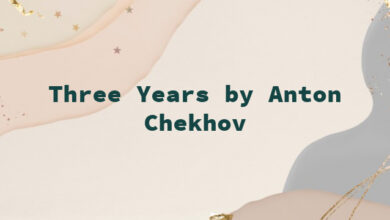
The Right Man by Ethel M. Dell
I
“He hasn’t proposed, then?”
“No; he hasn’t.” A pause; then, reluctantly: “I haven’t given him the opportunity.”
“Violet! Do you want to starve?”
The speaker turned in his chair, and looked at the girl bending over the fire, with a quick, impatient frown on his handsome face. They were twins, these two, the only representatives of a family that had been wealthy three generations before them, but whose resources had dwindled steadily under the management of three successive spendthrifts, and had finally disappeared altogether in a desperate speculation which had promised to restore everything.
“You don’t seem to realise,” the young man said, “that we are absolutely penniless–destitute. Everything is sunk in this Winhalla Railway scheme, up to the last penny. It seemed a gorgeous chance at the time. It ought to have brought in thousands. It would have done, too, if it had been properly supported. But it’s no good talking about that. It’s just a gigantic failure, or, if it ever does succeed, it will come too late to help us. Just our infernal luck! And now the question is, what is going to be done? You’ll have to marry that fellow, Violet. It’s absolutely the only thing for you to do. And I–I suppose I must emigrate.”
The girl did not turn her head. There was something tense about her attitude.
“I could emigrate too, Jerry,” she said, in a low voice.
“You!” Her brother turned more fully round. “You!” he said again. “Are you mad, I wonder?”
She made a slight gesture of protest.
“Why shouldn’t I?” she said. “At least, we should be together.”
He uttered a grim laugh, and rose.
“Look here, Violet,” he said, and took her lightly by the shoulders. “Don’t be a little fool! You know as well as I do that you weren’t made to rough it. The suggestion is so absurd that it isn’t worth discussion. You’ll have to marry Kenyon. It’s as plain as daylight; and I only wish my perplexities were as easily solved. Come! He isn’t such a bad sort; and, anyhow, he’s better than starvation.”
The girl stood up slowly and faced him. Her eyes were wild, like the eyes of a hunted creature.
“I hate him, Jerry! I hate him!” she declared vehemently.
“Nonsense!” said Jerry. “He’s no worse than a hundred others. You’d hate any one under these abominable circumstances!”
She shuddered, as if in confirmation of this statement.
“I’d rather do anything,” she said; “anything, down to selling matches in the gutter.”
“Which isn’t a practical point of view,” pointed out Jerry. “You would get pneumonia with the first east wind, and die.”
“Well, then, I’d rather die.” The girl’s voice trembled with the intensity of her preference. But her brother frowned again at the words.
“Don’t!” he said abruptly. “For Heaven’s sake, don’t be unreasonable! Can’t you see that it’s my greatest worry to get you provided for? You must marry. You can’t live on charity.”
Her cheeks flamed.
“But I can work,” she began. “I can—-“
He interrupted her impatiently.
“You can’t. You haven’t the strength, and probably not the ability either. It’s no use talking this sort of rot. It’s simply silly, and makes things worse for both of us. It’s all very well to say you’d rather starve, but when it comes to starving, as it will–as it must–you’ll think differently. Look here, old girl: if you won’t marry this fellow for your own sake, do it for mine. I hate it just as much as you do. But it’s bearable, at least. And–there are some things I can’t bear.”
He stopped. She was clinging to him closely, beseechingly; but he stood firm and unyielding, his young face set in hard lines.
“Will you do it?” he said, as she did not speak.
“Jerry!” she said imploringly.
He stiffened to meet the appeal he dreaded. But it did not come. Her eyes were raised to his, and she seemed to read there the futility of argument. She remained absolutely still for some seconds, then abruptly she turned from him and burst into tears.
“Don’t! don’t!” he said.
He stepped close to her, as she leaned upon the mantelpiece, all the hardness gone from his face. Had she known it, the battle at that moment might have been hers; for he would have insisted no longer. He was on the brink of abandoning the conflict. But her anguish of weeping possessed her to the exclusion of everything else.
“Oh, Jerry, go away!” she sobbed passionately. “You’re a perfect beast, and I’m another! But I’ll do it, I’ll do it–for your sake, as I would do anything in the world, though it’s quite true that I’d rather starve!”
And Jerry, rather pale, but otherwise complete master of himself, patted her shoulder with a hasty assumption of kindly approval; and told her that he had always known she was a brick.
II
“Heaven knows I don’t aspire to be any particular ornament to society,” said Dick Kenyon modestly. “Never have; though I’ve been pretty well everything else that you can think of, from cow-puncher to millionaire. And I can tell you there’s a dashed deal more fun in being the first than the last of those. Still, I think I could make you comfortable if you would have me; though, if you don’t want to, just say so, and I’ll shunt till further notice.”
It was thus that he made his proposal to the girl of his choice; and no one, hearing it, would have guessed that beneath his calm, even phlegmatic, exterior, the man was in a ferment of anxiety. He spoke with a slight nasal twang that seemed to emphasise his deliberation, and his face was mask-like in its composure. Of beauty he had none.
His eyes were extraordinarily blue, but the lids drooped over them so heavily that his expression was habitually drowsy, even stolid. In build, he was short and thick-set, like a bulldog; and there seemed to be something of a bulldog’s strength in the breadth of his chest, though there was no hint of energy about him to warrant its development.
The girl he addressed did not look at him. She sat perfectly still, with her hands fast clasped together, and her eyes, wide and despairing, fixed upon the fire in front of her. She was wondering desperately how long she could possibly endure it. Yet his last words were somehow not what she had expected from this man whose manner always seemed to hint that at least half of creation was at his sole disposal. They expressed a consideration on his part that she had been far from anticipating. He waited for an interval of several seconds for her to speak. He was standing up on the hearthrug, his ill-proportioned figure thrown into strong relief by the firelight behind him. At last, as she quite failed to answer him, he drew a pace nearer to her.
“Don’t mind me, Miss Trelevan,” he said, in a drawl so exaggerated that she thought it must be intentional. “Take your time. There’s no hurry. I’ve always thought it was a bit hard on a woman to expect her to answer an offer of marriage offhand. Perhaps you’d rather write?”
“No,” she said, rather breathlessly. “No!” Then, after a pause, still more breathlessly: “Won’t you sit down?”
He stepped away from her again, to her infinite relief, and sat down a couple of yards away.
There ensued a most painful silence, during which the battle in the girl’s heart raged fiercely. Then at length she took her resolution in both hands, and faced him. He was not looking at her. He sat quite still, and she fancied that his eyes were closed; but when she spoke he turned his head, and she realised that she had been mistaken.
“I can give you your answer now,” she said, making the greatest effort of her life. “It is–it is–yes.”
She rose with the words, almost as if in preparation for headlong flight. But Dick Kenyon kept his seat. He leaned forward a little, his blue eyes lifted to her face.
“Your final word, Miss Trelevan?” he asked her, in his cool, easy twang.
She wrung her hands together with an unconscious gesture of despair.
“Yes,” she said; and added feverishly: “of course.”
“You think you’ve met the right man?” he pursued, his tone one of gentle inquiry, as if he were speaking to a child.
She nodded. She was white to the lips.
“Yes,” she said again.
He got up then with extreme deliberation.
“Well,” he said, a curious smile flickering about his mouth, “that’s about the biggest surprise I’ve ever had. And I don’t mind telling you so. Sure now that you’re not making a mistake?”
She uttered a little laugh that sounded hysterical.
“Oh, don’t!” she said. “Don’t! I have given you my answer!”
“And I’m to take you seriously?” questioned Kenyon. “Very well. I will. But you mustn’t be frightened.”
He stretched out a steady hand, and laid it on her shoulder. She quivered at his touch, but she did not attempt to resist.
“Don’t be scared,” he said very gently. “I know I’m as ugly as blazes; at least, I’ve been told so, but there’s nothing else to alarm you if you can once get over that.”
There was a note of quaint raillery in his voice. He did not try to draw her to him. Yet she was conscious of a strength that did battle with her half-instinctive aversion–a strength that might have compelled, but preferred to attract.
Unwillingly, at length, she looked at him, meeting his eyes, good-humouredly critical, watching her.
“I am not frightened,” she said, with an effort. “It’s only that–just at first–till I get used to it–it feels rather strange.”
There was unconscious pleading in her voice. He took his hand from her shoulder, looking at her with his queer, speculative smile.
“I don’t want to hustle you any,” he said. “But if that’s all the trouble, I guess I know a remedy.”
Violet drew back sharply.
“Oh, no!” she said. “No!”
She was terrified for the moment lest he should desire to put his remedy to the test. But he made no movement in her direction, and another sort of misgiving assailed her.
“Don’t be vexed,” she said unsteadily. “I–I know I’m despicable. But I shall get over it–if you will give me time.”
“Bless your heart, I’m not vexed,” said Kenyon. “I’m only wondering, don’t you know, how you brought yourself to say ‘Yes’ to me. But no matter, dear. I’m grateful all the same.”
He held out his hand to her, and she laid hers nervously within it. She could not meet his eyes any longer.
Kenyon stooped and put his lips to her cold fingers.
“Jove!” he said softly. “I’m in luck to-day.”
And after that he sat down again, and began to behave like an ordinary visitor.
III
“Great Scotland!” said Jerry.
He looked up from a letter, and gazed at his sister with starting eyes.
“Oh, what?” she exclaimed in alarm.
He sprang up impetuously, and went round the table to her. They were breakfasting in the tiny flat which was theirs for but three short months longer.
“Guess!” he said. “No, don’t! I can’t wait. It’s the family luck, old girl, turned at last! It’s the original gorgeous chance again with a practical dead certainty pushing behind. It’s the Winhalla Railway turning up trumps just in time.”
And, with a whoop that might have been heard from garret to basement, Jerry swept his sister from her chair, and waltzed her giddily round the little room till she cried breathlessly for mercy.
“Oh, but do tell me!” she gasped, when he set her down again. “I want to understand, Jerry. Don’t be so mad. Tell me exactly what has happened!”
“I’ll tell you,” said Jerry, sitting down on the tablecloth. “It’s a letter from Gardner–my broker and man of business generally–written last night to tell me that one of these swaggering capitalists has got hold of the Winhalla Railway scheme, and is going to make things hum. Shares are going up already; and they’ll run sky high by the end of the week. It’s bound to be all right. It was always sound enough. It only wanted capital. He doesn’t tell me the bounder’s name, but that’s no matter. I don’t want to go into partnership. I shall sell, sell, sell, at the top of the boom. Gardner’s to be trusted. He’ll know–and then–and then—-“
“Yes; what does it mean?” the girl broke in. “I want to know exactly, Jerry!”
“Mean?” he echoed, his hands upon her shoulders. “It means emancipation, wealth, everything we’ve lost back again, and more to it! Now do you understand?”
She gasped for breath. She had turned very pale.
“Oh, Jerry!” she said tragically. “Jerry, why didn’t this happen before?”
He stared at her for a moment. Then, as understanding came to him, he frowned with swift impatience.
“Oh, that must be broken off!” he said. “You can’t marry that fellow now. Why should you?”
Violet shook her head hopelessly.
“I’ve promised,” she said; “promised to marry him at the end of next month.”
Jerry jumped up impulsively.
“But that’s soon arranged,” he declared. “Leave it to me. I’ll explain.”
“How can you?” questioned Violet.
“I shall put it on a purely business footing,” he returned airily. “Don’t you worry yourself. He isn’t the sort of chap to take it to heart. You know that as well as I do. Perhaps it might be as well to wait till the end of the week and make sure of things, though, before I say anything.”
But at this point Violet gave him the biggest surprise he had ever known. She sprang to her feet with flashing eyes.
“Indeed you won’t, Jerry!” she exclaimed. “You will tell him to-day–this morning–and end it definitely. Never mind what happens afterwards. I won’t carry the dishonourable bargain to that length. I’ve little enough self-respect left, but what there is of it I’ll keep!”
“Heavens above!” ejaculated Jerry, in amazement. “What’s the matter now? I was only thinking of you, after all.”
“I know you were,” she answered passionately. “But you’re to think of something greater than my physical welfare. You’re to think of my miserable little rag of honour, and do what you can for that, if you really want to help me!”
And with that she went quickly from the room and left him to breakfast alone.
He marvelled for a little at her agitation, and then the contents of the letter absorbed him again. He had better go and see Gardner, he reflected; and then, if the thing really seemed secure, he would take Dick Kenyon on his way back–perhaps lunch with him, and explain matters in a friendly way. There was certainly nothing for Violet to make a fuss about. He was quite fully convinced that the fellow wouldn’t care. Marriage was a mere incident to men of his stamp.
So, cheerily at length, having disposed of his breakfast, he rose, collected his correspondence, which consisted for the most part of bills, and, whistling light-heartedly, took his departure.
IV
“Now,” said Dick Kenyon, in his easy, self-assured accents, “sit down right there, sonny, and tell me what’s on your mind.”
He pressed Jerry into his most comfortable chair with hospitable force.
Jerry submitted, because he could not help himself, rather than from choice. Patronage from Dick Kenyon was something of an offence to his ever-ready pride.
As for Dick, he had not apparently the smallest suspicion of any latent resentment of this nature in his visitor’s mind. He brought out a box of choice cigars, and set them at Jerry’s elbow. They had just lunched together at Kenyon’s rooms; and it had been quite obvious to the latter that Jerry had been preoccupied throughout the meal.
Having furnished his guest with everything he could think of to ensure his comfort, he proceeded deliberately to provide for his own.
Jerry was not quite at his ease. He sat with the unlighted cigar between his fingers, considering with bent brows. Kenyon looked at him at last with a faint smile.
“If I didn’t know it to be an impossibility,” he said, “I should say you were shying at something.”
Jerry turned towards him with an air of resolution.
“Look here, Kenyon,” he said, in his slightly superior tones, “I have really come to talk to you about your engagement to my sister.”
He paused, aware of a change in Kenyon’s expression, but wholly unable to discover of what it consisted.
“What about it?” said Kenyon.
He was on his feet, searching the mantelpiece for an ash-tray. His face was turned from Jerry, but could he have seen it fully, it would have told him nothing.
Jerry went on, with a strong effort to maintain his ease of manner:
“We’ve been thinking it over, and we have come to the conclusion that perhaps, after all, it was a mistake. In short, my sister has thought better of it; and, as she is naturally sensitive on the subject, I undertook to tell you so, I don’t suppose it will make any particular difference to you. There are plenty of girls who would jump at the chance of marrying your millions. But, of course, if you wish it, some compensation could be made.”
Jerry paused again. He had placed the matter on the most businesslike footing that had occurred to him. Of course, the man must realise that he was a rank outsider, and would understand that it was the best method.
Kenyon heard him out in dead silence. He had found the ash-tray, but he did not turn his head. After several dumb seconds, he walked across the room to the window, and stood there. Finally he spoke.
“I don’t suppose,” he said, in his calm, expressionless drawl, “that you have ever had a cowhiding in your life, have you?”
“What?” said Jerry.
He stared at Kenyon in frank amazement. Was the man mad?
“Never had a cowhiding in your life, eh?” repeated Kenyon, without moving.
“What do you mean?” exclaimed Jerry.
Kenyon remained motionless.
“I mean,” he said calmly, “that I’ve thrashed a man to a pulp before now for a good deal less than you have just offered me. It’s my special treatment for curs. Suits ’em wonderfully. And suits me, too.”
Jerry sprang to his feet in a whirl of wrath, but before he could utter a word Kenyon suddenly turned.
“Go back to your sister,” he said, in curt, stern tones, “and tell her from me that I will discuss this matter with her alone. If she intends to throw me over, she must come to me herself and tell me so. Go now!”
But Jerry stood halting between an open blaze of passion and equally open discomfiture. He longed to hurl defiance in Kenyon’s face, but some hidden force restrained him. There was that about the man at that moment which compelled submission. And so, at length, he turned without another word, and walked straight from the room with as fine a dignity as he could muster. By some remarkable means, Dick Kenyon had managed to get the best of the encounter.
V
Not the next day, nor the next, did Violet Trelevan summon up courage to face her outraged lover, and ask for her freedom. Jerry did not tell her precisely what had passed, but she gathered from the information he vouchsafed that Kenyon had not treated the matter peaceably. She wondered a little how Jerry had approached it, and told herself with a beating heart that she would have to take her own line of action.
Nevertheless, for a full week she did nothing, and at the end of that week the flutter in the Winhalla Railway shares had subsided completely, and all Jerry’s high hopes were dead. From day to day he had tried to console himself and her with the reflection that a speculation of that sort was bound to fluctuate, but, in the end, when the shares went down to zero, he was forced to own that he had been too sanguine. It had been but the last flicker before extinction. The capitalist had evidently thought better of risking his money on such a venture.
“And I was a gaping, weak-kneed idiot not to sell for what I could get!” he told his sister. “But it’s just our luck. I might have known nothing decent could ever happen to us!”
It was on that evening, when the outlook was at its blackest, that Violet wrote at last, without consulting Jerry, to the man in whose hands lay her freedom.
It was a short epistle, and humbly worded, for she realised that this, at least, was his due.
“I want you,” she wrote, “to forgive me, if you can, for the wrong I have done you, and to set me free. I accepted you upon impulse, I am ashamed to say, for the sake of your money. But the shame would be even greater if I did not tell you so. I do not know what view you will take, but my own is that, in releasing me, you will not lose anything that is worth having.”
The answer to this appeal came the next day by hand:
“May I see you alone at your flat at five o’clock?”
She had not expected it, and she felt for an instant as if a master hand had touched her, sending the blood tingling through her veins like fire. She sent a reply in the affirmative; and then set herself to face the longest day she had ever lived through.
She sat alone during the afternoon, striving desperately to nerve herself for the ordeal. But strive as she might, the fact remained that she was horribly, painfully frightened. There was something about this man which it seemed futile to resist, something that dominated her, something against which it hurt her to fight.
She heard his ring punctually upon the stroke of five, and she went herself to answer it.
He greeted her with his usual serenity of manner.
“All alone?” he asked, as he followed her into the little drawing-room in which he had proposed to her so short a time before.
She assented nervously.
“Jerry went into the city. He won’t be back yet.”
“That’s kind of you,” said Kenyon quietly.
She did not ask him to sit down. They faced each other on the hearthrug. The strong glare of the electric light showed him that she was very pale.
Abruptly he thrust out his hand to her.
“You must forgive me for bullying your brother the other day,” he said. “Really, he deserved it.”
She glanced up quickly.
“Jerry doesn’t understand,” she said.
He kept his hand outstretched though she did not take it.
“I don’t understand, either,” he said.
“Do you really want to shake hands with me?” she murmured, her voice very low.
“I want to hold your hand in mine, if I may,” he answered simply. “I think it will help to solve the difficulty. Thank you! Yes; I thought you were trembling. Now, why, I wonder?”
She did not answer him. Her head was bent.
“Don’t!” he said gently. “There is no cause. Didn’t I tell you I would shunt if you didn’t want me?”
Still she was silent, her hand lying passive in his.
“Come!” he said. “I want to understand, don’t you know. That note of yours. You say in it that you accepted me for the sake of my money. Even so. But I reckon that is more a reason for sticking to me than for throwing me over.”
He paused, but her head only drooped a little lower.
“Doesn’t that reason still exist?” he asked her, point blank.
She shivered at the direct question, but she answered it.
“Yes; it does. And that’s why I’m ashamed to go on.”
“Why ashamed?” he asked. “How do you know my reason for wanting to marry you is as good since I never told you what it was?”
She looked up then, suddenly and swiftly, and caught a curious glint in the blue eyes that watched her.
“I do know,” she said, speaking quickly, impulsively. “And that’s why–I can’t bear–that you should despise me.”
“Ah!” he said. “Do you really care what an outsider like myself thinks of you?”
The colour flamed suddenly in her white face, but he went on in his quiet drawl as if he had not seen it:
“If I thought it was for your happiness, believe me, I would set you free. But, so far, you haven’t given me any reason that could justify such a step. Can’t you think of one? Honestly, now?”
She shook her head. Her eyes were full of blinding tears.
“What is it, then?” urged Kenyon. And suddenly his voice was as soft as a woman’s. “Has the right man turned up unexpectedly, after all? Is it for his sake?”
“Oh, don’t!” she cried passionately. “Don’t! You hurt me!”
And, turning sharply from him, she hid her face, and broke into anguished weeping.
Kenyon stood quite still for perhaps ten seconds; then he moved close to her, and put his arm round the slight, sobbing figure.
She did not start or attempt to resist him.
“There, there!” he whispered soothingly. “I knew there was a reason. Don’t cry, dear! It will be all right–all right. Never mind the beastly money. There’s going to be a big boom in the Winhalla Railway shares, and you’ll make your fortune over it. Yes; I know all about that. A friend told me. There’s a big capitalist pushing behind. They have gone down this week, but they are going to rise like a spring tide next. And then–you’ll be free to marry the right man, eh, dear? I sha’n’t stand in your way. I’ll even come and dance at the wedding, if you’ll have me.”
She uttered a muffled laugh through her tears, and turned slightly towards him within the encircling arm.
“I hope you will,” she murmured. “Because–because–” She broke off, and became silent.
Dick Kenyon’s arm did not slacken.
“If you could make it convenient to finish that sentence of yours, I’d be real grateful,” he observed, at length.
She lifted her face from her hands, and looked him in the eyes. Her own were shining.
“Because,” she said unsteadily, “I couldn’t marry the right man–if you weren’t there.”
He looked straight back at her without a hint of emotion in his heavy eyes.
“Quite sure of that?” he asked.
And she laughed again tremulously as she made reply.
“Quite sure, Dick,” she said softly, “though I’ve only just found it out.”
Jerry, tearing in a little later, brimful of city news, noticed that his sister’s face was brighter than usual, but failed, in his excitement, to perceive a visitor in the room, the visitor not troubling himself to rise at his entrance.
“News, Vi!” he shouted. “Gorgeous news! The Winhalla Railway is turning up trumps! The shares are simply flying up. I told Gardner I’d sell at fifty, but he says they are worth holding on to, for they’ll go above that. He vows they’re safe. And who do you think is the capitalist that’s pushing behind? Why, Kenyon!”
He broke off abruptly at this point as Kenyon himself arose leisurely with a serene smile and outstretched hand.
“Exactly–Kenyon!” he said. “But if you think he’s a rank bad speculator like yourself, sonny, you’re mistaken. I didn’t make my money that way, and I don’t reckon to lose it that way either. But Gardner’s right. Those shares are safe. They aren’t going down again ever any more.”
He turned to the girl on his other side, and laid his free hand on her shoulder.
“And I guess you’ll forgive me for distressing you,” he said, “when I tell you why I did it.”
“Well, why, Dick?” she questioned, her face turned to his.
“I just thought I’d like to know, dear,” he drawled, “if there wasn’t something bigger than money to be got out of this deal. And–are you listening, Jerry?–I found there was!”




